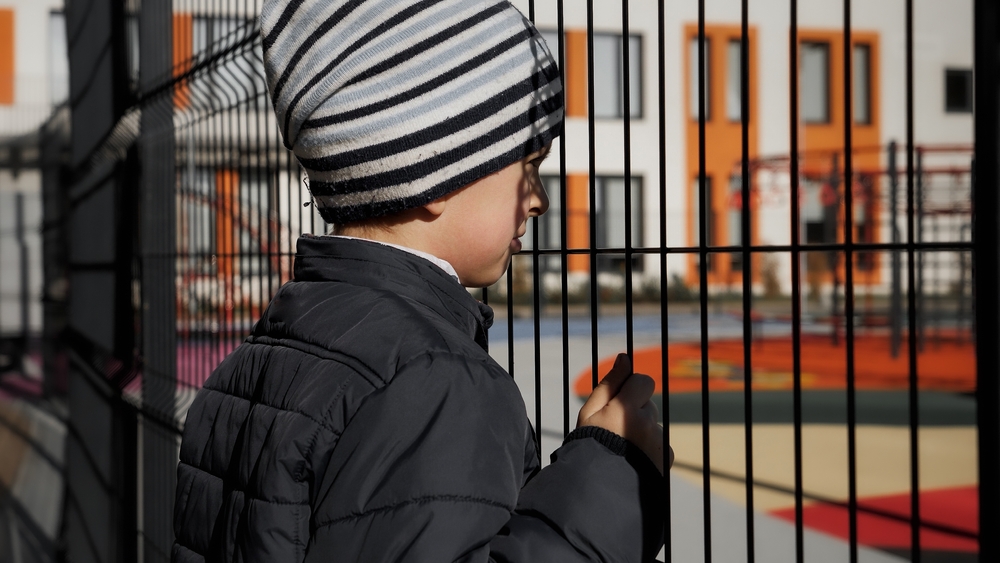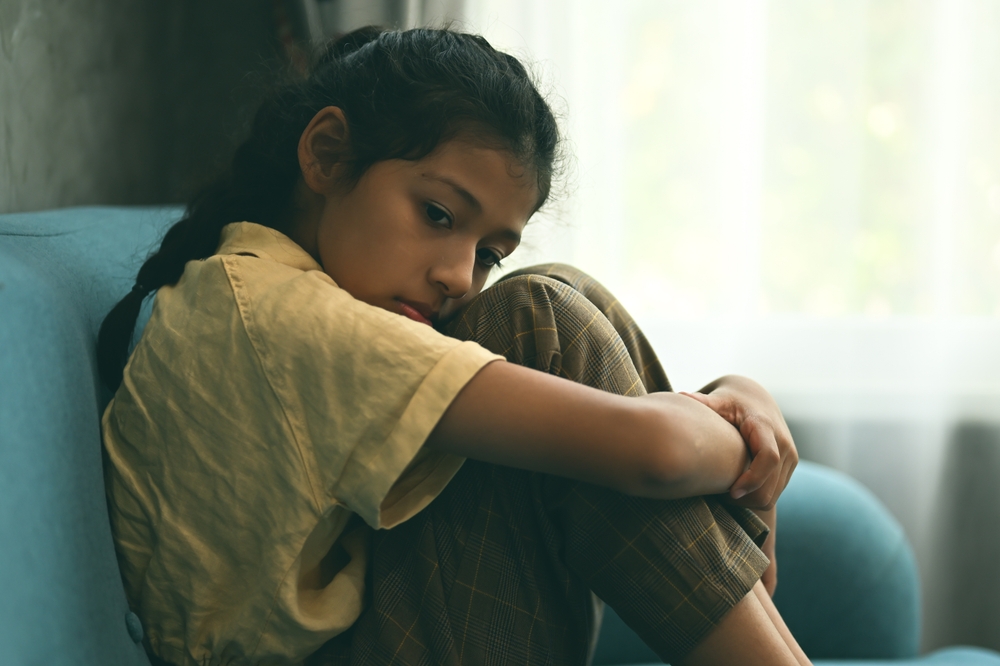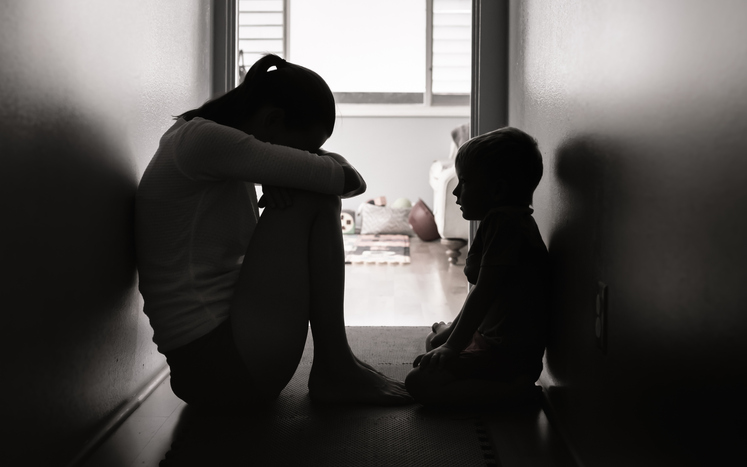We all carry pieces of our childhood with us, but some pieces weigh heavier than others. While everyone’s experience is unique, certain early-life experiences can leave lasting imprints on our sense of self-worth. Let’s explore some common childhood experiences that might be affecting how you value yourself today.
1. The “Why Can’t You Be More Like…” Comparison

Your cousin got straight As, your neighbor’s kid was a star athlete, and somehow you were always the “other” child in the equation. Every achievement came with a side of comparison, turning what should have been moments of pride into reminders of how you didn’t measure up. Those constant comparisons weren’t just annoying—they planted seeds of doubt that whispered you weren’t enough on your own merit. Now, even as an adult, you might find yourself automatically measuring your worth against others, as if your value is always relative to someone else’s success.
2. The Invisible Child Syndrome

Maybe you were the quiet one, the “good” kid who never caused trouble, or the middle child who got lost in the shuffle. Your basic needs were met, but your emotional needs? Those got about as much attention as a houseplant in a forgotten corner. You learned to take up less space, to need less, to expect less. Your achievements were met with distracted nods and your struggles with silence. Now, you might find yourself apologizing for having needs at all as if your very existence is an imposition on others.
3. The Conditional Love Setup

Love in your household came with more strings attached than a puppet show. Good grades earned you affection, mistakes earned you cold shoulders. You learned early that love was something you had to earn through performance, not something you deserved simply for existing. Today, you might find yourself on an endless treadmill of achievement, constantly trying to prove your worth through accomplishments while feeling empty inside regardless of success.
4. The Emotional Invalidation Game

When you were sad, you were told to “get over it.” When you were angry, you were “too sensitive.” When you were happy, you were “too loud.” Every emotion you expressed was somehow wrong, too much, or not enough. You learned to doubt your own feelings, to question your reactions to everything. Now, you might struggle to trust your own emotional responses, constantly second-guessing whether you have the right to feel what you feel.
5. The Perfectionism Prison

Making mistakes wasn’t just disappointing—it was catastrophic. Every error was treated like a character flaw, every misstep like a moral failing. You learned that being perfect was the only way to be acceptable, and anything less meant total failure. Today, you might find yourself paralyzed by the fear of making mistakes, unable to take risks or try new things because the possibility of imperfection feels like a threat to your very identity.
6. The Responsibility Overload

While other kids were learning to ride bikes, you were learning to be a third parent, a therapist, or the family mediator. Your childhood was sacrificed on the altar of adult responsibilities, forcing you to grow up way too fast. You became the family’s emotional support system, carrying burdens that weren’t yours to bear. Now, you might struggle to relax or enjoy life, feeling guilty whenever you’re not being “productive” or taking care of others.
7, The Silent Treatment Torture

Conflict in your house wasn’t handled with words—it was handled with silence. Days or weeks would pass with frozen tension, teaching you that disagreements meant abandonment and that relationships were fragile things that could shatter at any moment. You learned that speaking up meant risking everything. Today, you might find yourself walking on eggshells in relationships, swallowing your needs and opinions to avoid any hint of conflict.
8. The Achievement Addiction

Your worth was measured in report cards, trophies, and accomplishments. Love and attention flowed freely when you succeeded but dried up completely when you struggled. You became a gold-star junkie, addicted to external validation and terrified of failure. Now, you might find yourself unable to feel satisfied with any achievement, always chasing the next goal in an endless pursuit of worthiness.
9. The Public Humiliation Show

Your mistakes weren’t just corrected—they were announced, discussed, and used as cautionary tales for others. Whether it was in front of family, at school, or in public, your flaws became public property for everyone to dissect and discuss. You learned that vulnerability meant exposure to ridicule. Today, you might find yourself obsessing over how others perceive you, constantly trying to maintain a perfect image to avoid any possibility of public shame.
10. The Double Bind Dance

No matter what you did, it was somehow wrong. Be independent, but don’t make decisions without permission. Be successful, but never outshine your siblings. Speak up, but don’t talk back. These impossible contradictions taught you that you could never win, no matter how hard you tried. Today, you might find yourself constantly second-guessing your decisions, trapped in analysis paralysis because every choice feels like a potential mistake.
11. The Gaslighting Situation

Your memories were questioned, your perceptions challenged, and your feelings dismissed. What you saw with your own eyes was rewritten, what you felt with your own heart was denied. You learned to doubt your own reality and question your own judgment. Now, you might struggle to trust your own perceptions, constantly seeking external validation for your experiences and feelings, as if your own truth isn’t enough.
12. The Financial Shame Spiral

Money problems weren’t just discussed in your home, they were weaponized against you. Every request for school supplies or new clothes became a reminder of your family’s struggles. You learned to feel guilty for having basic needs, to see yourself as a financial burden. Today, you might struggle with severe money anxiety, feeling undeserving of financial security or success, even when you’ve earned it.
13. The Identity Erasure Pattern

Your interests, preferences, and personality were treated as inconvenient deviations from what your family wanted you to be. Your authentic self was steadily chipped away and replaced with what others deemed “appropriate.” Whether it was your career choice, your hobbies, or your self-expression, nothing felt truly yours. Now, you might struggle to know what you genuinely want, constantly questioning whether your preferences are really yours or just another layer of adaptation.
14. The Secret Keeper Burden

You were forced to carry adult secrets way too young—affairs, addictions, financial troubles, or family shame. These secrets became heavy stones in your pockets, weighing you down while you tried to act normal. You learned that keeping secrets was more important than your own emotional well-being. Today, you might find yourself automatically absorbing others’ burdens, feeling responsible for protecting everyone’s secrets while struggling to maintain your own boundaries.
15. The Talent Trap

Your natural abilities became a cage rather than a gift. Whether it was academics, sports, or arts, your talent wasn’t celebrated—it was exploited. You weren’t allowed to explore or enjoy your abilities, instead, they became obligations to fulfill others’ dreams. Every achievement just raised the bar higher, turning what you once loved into a source of anxiety. Now, you might find yourself unable to enjoy your own talents, seeing them only as tools for earning approval rather than sources of personal joy.








